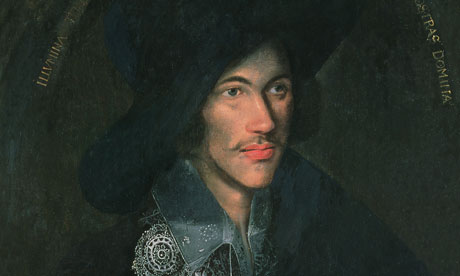
1. The school of John Donne
It appeared in the 17th century. The founder of this school
is John Donne which contains or includes poet like Henry Vaughan, Andrew
Marvell, and George Herbert. A metaphysical poets (who are dealing with
philosophical) or are the poets who express a philosophical views and thoughts
in his poetry. He is interested in presenting his experiences and in presenting
the analytical nature of things.
The
characteristics of Metaphysical poetry:
1. The Metaphysical poetry appeared as creation
against the Elizabethan form and expression. In other words, it appeared
against the Elizabethan poetry.
2. The Metaphysical poets were very intellectual and
their intellect reveals their awareness of variety of attitude towards their
experiences.
3. they were interested in presenting their
experiences and they wanted to find a connection between their experience and
their feeling.
4. the metaphysical poets were interested in
presenting conceit in their poetry, a comparison between two different things
or experience.
5. The poetry of metaphysical poetry reflects
philosophical views and thoughts.
6. The Metaphysical poets are very wittily and their
wit affected their poems too much.
7. The
language of Metaphysical poets is direct, natural and conversation.
8. The Metaphysical poems reflect the dramatic
qualities in the structure of these poems (they address person like a dialogue
or conversation.
9. Love in the Metaphysical poems is different or is
treated quite different from the
Elizabethan poems, the Metaphysical
poets do not treat their beloved as goddess
figure or as ideal persons. Instead,
they deal with the (beloved) as a human
being.
2.
The school of Jonson
The second school is named
as the school of Ben Jonson. The members of this school are: Ben Jonson, the
master of the school; Robert Herrick, Edmund Walter, Richard Lovelace and Sir.
John Suckling.
The characteristics of Jonson's poetry:
1.
Jonson's followers are sometime called the "Sons of Ben" or the
"Tribe of Ben" because they drew from him their chief guidance in
poetry.
2.
Jonson's great influence on Seventeenth Century poetry matched and coincided
with that of Donne.
3. The poets of this school were also influence to
some extent by Donne.
4.
Jonson's poetry was another reaction against the Spenserian and Elizabethan
traditions.
5.
Jonson brought to lyric poetry a new craftsmanship and a new tone, his sense of
decorum, clarity, proportion, and classical form was coupled with tough realism
and a language which never seemed far removed from colloquial English.
6.
Jonson had assimilated classical influences to develop a personal mode. His
adherence to classical forms and styles did not only influence his followers,
but also made him the most important forerunner of the Neo-classical movement
of the eighteenth century.
7.
These poets were influenced by the major Roman Poets, such as Virgil and
Horance Left the Motto of "seizing the day for tomorrow we shall die"
This motto is called Carp-diem. These poets search for earthy pleasure and the
main subject of their poems is the woman who is to be the beloved.
8.
Lovelace, Suckling, and Waller are the Courtiers, or the Cavaliers. They have
learned much from Jonson's verse (order and balance, clarity, compression and
precision, and restraint of emotion). They described as imitators who
standardized and simplified the mode they drew from Ben.
a.
Lovelace fought with Charles I. The circumstances of his chivalrous life
provided him with a perfect poetic opportunity. He uses Petrarchan imagery that
is affected by the Metaphysical.
b.
Suckling had the largest potentialities for poetry.
c. Waller's case is different. One may notice in his
poetry Jonsonian neatness,
Cavalier ease and grace, and streaks
of Metaphysical passionate thought. Some
of his poems written in the heroic couplet, illustrates the move toward
epigram
(short, clever, and musing
saying).





0 comments:
Post a Comment